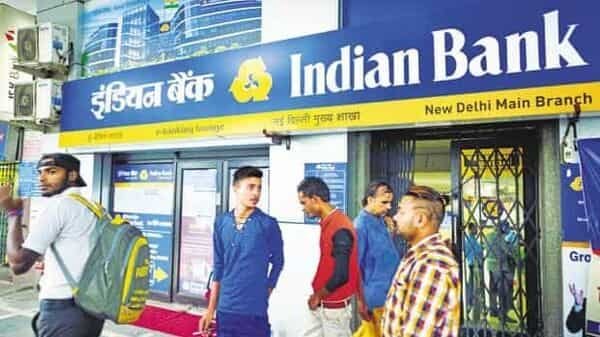Due to their strong earnings, the shares of state-owned institutions have outperformed the banking benchmark index during the past year. Throughout the aforementioned time period, Nifty Bank increased by 9.28%, while the Nifty PSU Bank index increased by 44.42%. Brokers have high hopes for Indian Bank, a PSU lender. The bank, which has its headquarters in Chennai, is anticipated to perform well thanks to a solid margin, normalised credit costs, and an improvement in fees.
In a research note, Emkay Global stated that a strong margin trajectory, improved fees, and a normalisation of loan cost may drive shares of PSU lender Indian Bank to steadily increase in value. With a target price of 375, the firm has kept its “Buy” rating, indicating a possible upside of 40.6% from present levels.
Indian Bank’s share price has fallen to $266.70 year to year, losing more than 9.82 cents in 2023. The stock’s 52-week high and low are each Rs 310 and 137.20, respectively. It has a market value of 33,209.69 crore.
“Bank maintains clarity on achieving growth without compromising on margins; thus, it would avoid chasing growth in its corporate book. Consequently, bank guides for 13-14% credit growth in FY23 (lower than the system at 15-16%) and foresees maintaining a similar trend in FY24, based on macro conditions and focus on margins,” said Emkay in its report.
State-owed Indian Bank reported a 102% increase in standalone net profit to ₹1,396 crore in Q3 FY23 owing to stronger net interest income. The Bank’s total income increased to ₹13,551 crore in the quarter from ₹11,482 crore in the year-ago period.
The bank’s total deposits increased 6% y-o-y to ₹5.97 trillion in the December quarter as compared to ₹5.62 trillion during the corresponding period a year ago. Its total advances grew by 13% to ₹4.51 trillion in Q3 FY23, as against ₹4 trillion a year ago. Indian Bank’s current and savings account (CASA) deposits recorded a y-o-y growth of 3% and stood at ₹2.41 trillion in December 2022. The share of CASA to deposits stood at 40.4%.
The brokerage noted that Indian Bank benefited the most from its merger with east-India based Allahabad Bank, in terms of CASA, which stands high at 40% amongst peers.
“However, CASA is under pressure for most banks due to cannibalization towards TDs as well as competition from NSS (National Saving Schemes) and other alternative investments,” the brokerage said.
Its gross NPA ratio was at 6.53% as on 31 December 2022 as against 7.3% on 30 September 2022 and 9.13% on 31 December 2021. The bank’s net NPA ratio was at 1% as on 31 December 2022 as against 1.50% on 30 September 2022 and 2.72% on 31 December 2021.
“We expect the bank to report 0.8% RoA in FY23E and reach 1% by FY24E/FY25E, led by a healthy margin trajectory, improving fees (incl. PSLC) and normalization of credit cost (1.1-1.2%, from a high of >2%). Additionally, Indian Bank is one of the few PSBs to remain well capitalized, with CET 1 at 13.2% (including 9MFY23 profit), thus posing no risk of equity dilution for investors, unlike peers. The current MD & CEO’s term is till Sep-2024, post which he will be eligible for a 2-year extension before superannuation. We retain a BUY on the stock, with TP of Rs375/share (0.8x FY25E ABV),” Emkya said.
Disclaimer: The views and recommendations made above are those of individual analysts or broking companies, and not of sharebaz

